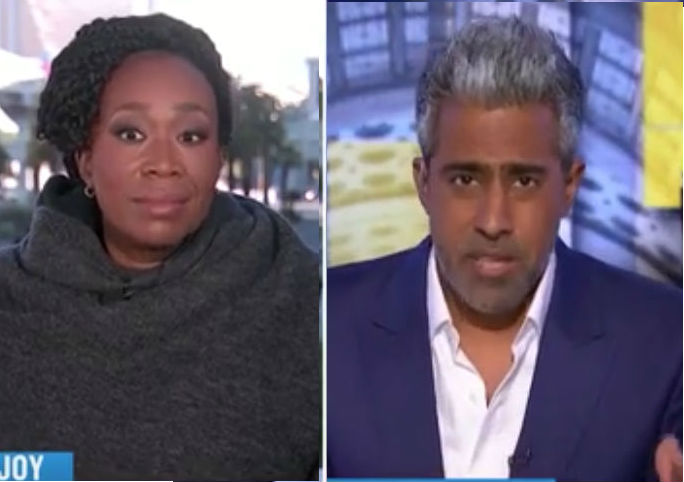Margaret Sullivan, the Washington Post media writer and highly respected former public editor of the New York Times, called on the political media to ditch the false equivalence and the credulity and the euphemisms — in favor of honest and direct language describing the urgent threat that a newly unbound Donald Trump poses to democracy.
Anand Giridharadas, the noted author and chronicler of the elites, went on MSNBC, where he is a contributor, to call upon his network colleagues and others to stop freaking out about the Bernie Sanders groundswell and instead ask themselves: “What is going on in the lives of my fellow citizens that they may be voting for something I find it so hard to understand?”
Naomi Klein, whose writing so effectively champions social, economic and ecological justice, called on the mainstream media to dispel rather than spread “the barrage of lies” about democratic socialism. “Journalists make choices at key moments in history,” she wrote, “they aren’t mere spectators.”
These three powerful, emotional and urgent calls for fundamental change in the way the elite media covers politics all came on one day – Sunday – and taken together strongly suggest that we are at (or past) what should be an inflection point for the political-journalism industry.
This should be a time to take stock. To reconsider whether core journalistic values are being served by arguably anachronistic methods like “neutrality-at-all-costs,” as Sullivan wrote. To ask if our most dominant news organizations are sleep-walking through “a wake-up moment for theAmerican power establishment,” as Giridharadas said. To rededicate to the most essential job of journalism, which, as per Klein, is to “educate people.”
I launched Press Watch precisely because I think we need to talk about this stuff – a lot, and often.
I’ve been exploring problem practices like false equivalence and horse-race journalism. I’ve been calling out examples of timidity and getting played. And, in what has been the biggest challenge, I’m trying to help identify and establish best practices.
The response has been incredible, and extremely positive. But it would be naïve of me to suggest that the leaders of our industry have engaged in any serious rethinking — even after Donald Trump’s campaign, election, and presidency exposed and exploited political journalism’s chronic weaknesses like never before.
It’s more like they’re defensively digging in — even now as, in Sullivan’s words, “the nation slides toward autocracy.”
We know what we want political journalism to be. A year ago, the Knight Commission on Trust, Media and Democracy summarized that very effectively:
At its best, journalism informs the public on matters of civic concern, gives citizens a common set of facts, provides context that lends greater meaning to the news, independently monitors and holds those in power accountable, and strengthens the public discourse. Good journalism helps us to understand others whose lives and challenges are very different from our own.
We know what needs to change. It involves “less false equivalence, more high-impact language and more willingness to take a stand for democracy,” writes Sullivan. It involves corporate media figures recognizing that “This is a moment for curiosity in America,” says Giridharadas. It involves actively fighting misinformation, rather than reporting on how effective it will be, as Klein argues.
It also involves news leaders opening their minds to a number of excellent ideas that have been percolating in the academic, non-profit and philanthropic worlds, such as practicing radical transparency; holding politicians accountable to the citizens’ agenda; teaching news literacy and civics; pursuing solutions journalism; encouraging civic engagement; and standing up more assertively for a free press. (See, for instance, these seven calls-to-arms for political journalism.)
I am hopeful that pleas like those from Sullivan, Giridharadas, Klein and others will force the news industry to squarely and urgently reconsider how political journalism is practiced. The industry needs an intervention.
And in the meantime, I’ll try to keep the pressure on, as well.
Please consider making a donation to Press Watch – or, even better, please let your favorite philanthropic individuals and organizations know that you think Press Watch deserves their support.

I don’t care that Bernie calls himself a Socialist Democrat; I think it’s an empty label. What I do care about is his refusal to be truthful about the cost of “Medicare for all.” People need to open their eyes and realize he will not share the facts. Going from a liar to a dissembler is not better. Truth matters!
Well said. We have to hope people vote with their clicks and their pocketbooks (giving or withholding each) so the corporate owners of the various media see the profit in real news coverage. The horse-race analysis and the dramatic headlines serve to generate short-term interest, but that is at the cost of our long-term interests as a people.
Thanks for keeping the candle lit, looking for an honest corporation to bring us honest journalism. If we let them know in no uncertain terms we will accept nothing less, perhaps they’ll pay attention.